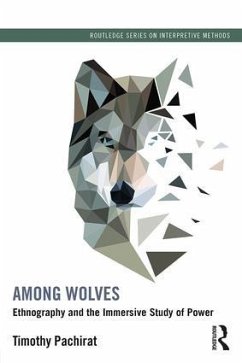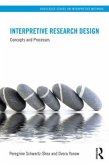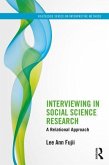Summoned by an anonymous Prosecutor, ten contemporary ethnographers gather in an aging barn to hold a trial of Alice Goffman's controversial ethnography, On the Run. But before the trial can get underway, a one-eyed wolfdog arrives with a mysterious liquid potion capable of rendering the ethnographers invisible in their fieldsites.
Presented as a play that unfolds in seven acts, the ensuing drama provides readers with both a practical guide for how to conduct immersive participant-observation research and a sophisticated theoretical engagement with the relationship between ethnography as a research method and the operation of power. By interpolating "how-to" aspects of ethnographic research with deeper questions about ethnography's relationship to power, this book presents a compelling introduction for those new to ethnography and rich theoretical insights for more seasoned ethnographic practitioners from across the social sciences. Just as ethnography as a research method depends crucially on serendipity, surprise, and an openness to ambiguity, the book's dramatic and dialogic format encourages novices and experts alike to approach the study of power in ways that resist linear programs and dogmatic prescriptions. The result is a playful yet provocative invitation to rekindle those foundational senses of wonder and generative uncertainty that are all too often excluded from conversations about the methodologies and methods we bring to the study of the social world.
Presented as a play that unfolds in seven acts, the ensuing drama provides readers with both a practical guide for how to conduct immersive participant-observation research and a sophisticated theoretical engagement with the relationship between ethnography as a research method and the operation of power. By interpolating "how-to" aspects of ethnographic research with deeper questions about ethnography's relationship to power, this book presents a compelling introduction for those new to ethnography and rich theoretical insights for more seasoned ethnographic practitioners from across the social sciences. Just as ethnography as a research method depends crucially on serendipity, surprise, and an openness to ambiguity, the book's dramatic and dialogic format encourages novices and experts alike to approach the study of power in ways that resist linear programs and dogmatic prescriptions. The result is a playful yet provocative invitation to rekindle those foundational senses of wonder and generative uncertainty that are all too often excluded from conversations about the methodologies and methods we bring to the study of the social world.
HONORABLE MENTION: 2019 CHARLES TAYLOR BOOK AWARD
Excerpt from the Award
'In this dramatic reimagining of discussion of ethnographic methods as a conversation between a cast of ethnographers brought together for an ethnographic trial, Among Wolves transcends the limitations of writing a methods book in both content and form. The device of a play enables Pachirat to present lively, rich and multifaceted discussion of issues of positionality, reflexivity, ethics and many other challenges facing researchers using ethnographic methods. The format is exceptionally engaging, with the fact that the questions raised are rightly left unresolved encouraging the reader to reflect critically on their own approaches and role in research. Pachirat has succeeded in showing not only how ethnography can be practised, but also in making a compelling case for why it cannot be separated from considerations of power. Among Wolves is an extremely welcome and refreshing addition to discussions of interpretive methods that adroitly illustrates Charles Taylor's argument that "interpretation is essential to explanation" and which offers much to both students and practitioners of ethnographic methods alike.'
'When is the last time you encountered a new scholastic format? Among Wolves does something radical. It will surely provoke, likely enrage, but most of all force readers to think anew. For those looking to move beyond staid ways of knowing and writing: this is the book for you.'
Shamus Khan, Professor and Chair of the Department of Sociology, Columbia University
'This play is an extraordinary piece of scholarship. It really made me think-- about ethnography, about academia and about the many faces of knowledge. It should be required reading for anyone interested in understanding ethnography and for all those who seek to understand social science as a body of practices that collectively illuminate and improve the human condition.'
Katherine Cramer, Professor of Political Science, University of Wisconsin-Madison
'Staged as a play in seven acts, Among the Wolves is an inventive, lively, uncommonly rich extended seminar on the joys and challenges of ethnography. In a series of imagined, ingeniously crafted conversations among prominent ethnographers, Pachirat explores the tensions between emic and etic forms of knowledge; current anxieties about the reliability of ethnographic evidence; the importance of reflexivity and the attunement to scholarly "positionality"; the varied and vulnerable-making power relations suffusing interpretive encounters; the pleasures of serendipity; the need to embrace indeterminacy, ambiguity, and surprise; the intellectual value of both theory and empiricism; ethnography's complicity in colonial and imperial enterprises; and the ongoing obligations of researchers to their interlocutors in the field. Parodying the conventions of positivist social science with dramatic personae such as Dr. Popper Will Falsify, Pachirat exposes the wrongheadedness of the view that ethnographers should or could be invisible in the field. Rather than gatherers of raw data or chroniclers of unmediated source materials, scholars, Pachirat advises, must understand the complexity of the human condition-the affectively complex, socially constituted, meaningful, often conflictual worlds within which we participate and observe-acting, adapting, and making sense with others.'
Lisa Wedeen, Mary R. Morton Professor of Political Science, The University of Chicago
'In his theatrical review of the problems and pleasures of ethnographic research today, Pachirat effectively conveys the articulated hopes, ideals, and suspicions of ten diverse characters who are noted for producing superlative ethnographic work over the past quarter century. His interlocutors come across as uncannily close to the voices registered in their respective texts. They encompass the practice of ethnography in anthropology, sociology, and political science (but significantly, not in design, technology, or art collaborations). The figure of the wolf, the invisibility potion, and the trial of Alice Goffman are experimental moves of dramaturgy that do not overwhelm Pachirat's sheer skill in bringing the reader, especially ethnography's apprentices, into reasoned, civil dialogues among ten diverse and celebrated writers.'
George Marcus, Chancellor's Professor, University of California, Irvine
'Among Wolves is a spirited, offbeat guide to the differing styles and informing disciplines in 'the cultural representation trade.' Provocative and consistently probing, it is a quirky performance-art method and theory rumination exploring the treacherous ethics of ethnography in the field and at the writing desk. A compelling read for ethnographers of all seasons and stripes.'
John Van Maanen, Erwin H. Schell Professor of Management and Professor of Organization Studies at MIT and author of Tales of the Field
'Among Wolves is both masterclass and manifesto for how ethnography generates insights into the operation of power as well as providing a thoughtful exploration of the politics of ethnographic methods. Pachirat is to be congratulated on creating a vivid, evocative and accessible text that will compel readers to laugh, sigh, frown and - most frequently - pause to reflect and think. The book's multidisciplinary cast of ethnographers adroitly guide the reader through debates, dilemmas and decisions, and there is a reference, comment or idea to bookmark and explore further on almost every page. This deceptively slim and readable book insistently demands that we engage actively with the praxis of ethnography and will richly reward repeated readings and discussions whether in the classroom, the field, or wherever else we find ourselves contemplating how to understand people's experiences of the socio-political world.'
Cai Wilkinson, Associate Head of School of Humanities and Social Sciences, Deakin University
'With its bold format, Timothy Pachirat's Among Wolves is an intellectual and pedagogical delight. Inserting readers into lively intellectual debates that defy easy answers, it challenges us all to improve our self-knowledge as we embark on ethnographic journeys. Embracing complexity, nuance, immersion, and personal engagement-all the hallmarks of top ethnographic work-Pachirat packs dozens of insights into every page. Students and practitioners of ethnography, not to mention non-ethnographers curious about the craft, will love this book.'
Edward Schatz, Professor and Chair of the Political Science Department, University of Toronto (Mississauga) and editor of Political Ethnography: What Immersion Contributes to the Study of Power
'Such a refreshing contrast to standard texts on ethnography. This book is a joy to read. The unique writing style draws one in surprisingly quickly and makes the book hard to lay aside. In re-creating a conversation between a handful of particularly accomplished contemporary ethnographers, Pachirat has provided us with a highly original, user-friendly, exploration of the (oftentimes painfully personal) challenges of "doing" fieldwork.'
Mark de Rond, Professor of Organisational Ethnography, University of Cambridge
'While methods books may be a necessary tool, especially for students, they are often boring. Timothy Pachirat's volume revolutionizes the genre, and the result is absolutely refreshing and convincing. Imagine a play where all the major methodological and theoretical issues raised by ethnography are discussed by a prosecutor arriving on a Harley Davidson to meet with a group of well-known ethnographers in the presence of a Wolfdog! This book will be on the list of required readings for my graduate seminar on ethnographic methods.'
Martina Avanza, Université de Lausanne and co-director of EthnoPol
'In Among Wolves Timothy Pachirat sketches some of the practical intricacies of doing ethnography and touches upon the philosophical challenges and theoretical underpinnings of thinking ethnographically. Written as a play, the book offers an unusually dramatic account of ethnography's pros and cons. While its dialogical style allows for debate by bringing together different, sometimes competing views, the creative structure of the book takes off some of the heat that such debates tend to generate. This allows the reader to approach some of ethnography's highflying and down-to-earth questions in a light and lucid style. A fantabulous book for both experienced and less-experienced ethnographers.'
Sierk Ybema, Vrije Universiteit Amsterdam & Anglia Ruskin University
'Among Wolves is excellent, both as an academic book on social science methodology and a self-contained work of (academic) literature. Just to add a few more honest words of appreciation to the praise on the book's cover: Among Wolves is a book that I wish I had read much earlier in my time as a doctoral student, and in my life as a human. In this sense, it is a book for anyone who has ever felt that life, at least from time to time, takes place 'among wolves'. The only word of caution that I must include is one already noted in its blurb: Among Wolves is 'deceptively slim' - so do not underestimate the weight it carries in relation to the small space it will occupy on your book shelf.'
Kristin Eggeling, LSE Review of Books
'Valuable books are those that provoke questions more than provide answers. In this regard, Among Wolves will enter the shelf of poison ivied books that discomfort us to our benefit.'
Gary Alan Fine, Contemporary Sociology
'While this is an academic book that can also double as a reference book, it is a breath of fresh air in academic publishing. A welcome addition to the normally dry nature of academic scholarship. The book is an exemplar [of] academic writing using alternate genres of representation and challenging the notion of what academic scholarship needs to look like. Not only is the play a proper academic book, it is also a good play in its own right.'
Ajit P Bhattarai, Qualitative Research
Excerpt from the Award
'In this dramatic reimagining of discussion of ethnographic methods as a conversation between a cast of ethnographers brought together for an ethnographic trial, Among Wolves transcends the limitations of writing a methods book in both content and form. The device of a play enables Pachirat to present lively, rich and multifaceted discussion of issues of positionality, reflexivity, ethics and many other challenges facing researchers using ethnographic methods. The format is exceptionally engaging, with the fact that the questions raised are rightly left unresolved encouraging the reader to reflect critically on their own approaches and role in research. Pachirat has succeeded in showing not only how ethnography can be practised, but also in making a compelling case for why it cannot be separated from considerations of power. Among Wolves is an extremely welcome and refreshing addition to discussions of interpretive methods that adroitly illustrates Charles Taylor's argument that "interpretation is essential to explanation" and which offers much to both students and practitioners of ethnographic methods alike.'
'When is the last time you encountered a new scholastic format? Among Wolves does something radical. It will surely provoke, likely enrage, but most of all force readers to think anew. For those looking to move beyond staid ways of knowing and writing: this is the book for you.'
Shamus Khan, Professor and Chair of the Department of Sociology, Columbia University
'This play is an extraordinary piece of scholarship. It really made me think-- about ethnography, about academia and about the many faces of knowledge. It should be required reading for anyone interested in understanding ethnography and for all those who seek to understand social science as a body of practices that collectively illuminate and improve the human condition.'
Katherine Cramer, Professor of Political Science, University of Wisconsin-Madison
'Staged as a play in seven acts, Among the Wolves is an inventive, lively, uncommonly rich extended seminar on the joys and challenges of ethnography. In a series of imagined, ingeniously crafted conversations among prominent ethnographers, Pachirat explores the tensions between emic and etic forms of knowledge; current anxieties about the reliability of ethnographic evidence; the importance of reflexivity and the attunement to scholarly "positionality"; the varied and vulnerable-making power relations suffusing interpretive encounters; the pleasures of serendipity; the need to embrace indeterminacy, ambiguity, and surprise; the intellectual value of both theory and empiricism; ethnography's complicity in colonial and imperial enterprises; and the ongoing obligations of researchers to their interlocutors in the field. Parodying the conventions of positivist social science with dramatic personae such as Dr. Popper Will Falsify, Pachirat exposes the wrongheadedness of the view that ethnographers should or could be invisible in the field. Rather than gatherers of raw data or chroniclers of unmediated source materials, scholars, Pachirat advises, must understand the complexity of the human condition-the affectively complex, socially constituted, meaningful, often conflictual worlds within which we participate and observe-acting, adapting, and making sense with others.'
Lisa Wedeen, Mary R. Morton Professor of Political Science, The University of Chicago
'In his theatrical review of the problems and pleasures of ethnographic research today, Pachirat effectively conveys the articulated hopes, ideals, and suspicions of ten diverse characters who are noted for producing superlative ethnographic work over the past quarter century. His interlocutors come across as uncannily close to the voices registered in their respective texts. They encompass the practice of ethnography in anthropology, sociology, and political science (but significantly, not in design, technology, or art collaborations). The figure of the wolf, the invisibility potion, and the trial of Alice Goffman are experimental moves of dramaturgy that do not overwhelm Pachirat's sheer skill in bringing the reader, especially ethnography's apprentices, into reasoned, civil dialogues among ten diverse and celebrated writers.'
George Marcus, Chancellor's Professor, University of California, Irvine
'Among Wolves is a spirited, offbeat guide to the differing styles and informing disciplines in 'the cultural representation trade.' Provocative and consistently probing, it is a quirky performance-art method and theory rumination exploring the treacherous ethics of ethnography in the field and at the writing desk. A compelling read for ethnographers of all seasons and stripes.'
John Van Maanen, Erwin H. Schell Professor of Management and Professor of Organization Studies at MIT and author of Tales of the Field
'Among Wolves is both masterclass and manifesto for how ethnography generates insights into the operation of power as well as providing a thoughtful exploration of the politics of ethnographic methods. Pachirat is to be congratulated on creating a vivid, evocative and accessible text that will compel readers to laugh, sigh, frown and - most frequently - pause to reflect and think. The book's multidisciplinary cast of ethnographers adroitly guide the reader through debates, dilemmas and decisions, and there is a reference, comment or idea to bookmark and explore further on almost every page. This deceptively slim and readable book insistently demands that we engage actively with the praxis of ethnography and will richly reward repeated readings and discussions whether in the classroom, the field, or wherever else we find ourselves contemplating how to understand people's experiences of the socio-political world.'
Cai Wilkinson, Associate Head of School of Humanities and Social Sciences, Deakin University
'With its bold format, Timothy Pachirat's Among Wolves is an intellectual and pedagogical delight. Inserting readers into lively intellectual debates that defy easy answers, it challenges us all to improve our self-knowledge as we embark on ethnographic journeys. Embracing complexity, nuance, immersion, and personal engagement-all the hallmarks of top ethnographic work-Pachirat packs dozens of insights into every page. Students and practitioners of ethnography, not to mention non-ethnographers curious about the craft, will love this book.'
Edward Schatz, Professor and Chair of the Political Science Department, University of Toronto (Mississauga) and editor of Political Ethnography: What Immersion Contributes to the Study of Power
'Such a refreshing contrast to standard texts on ethnography. This book is a joy to read. The unique writing style draws one in surprisingly quickly and makes the book hard to lay aside. In re-creating a conversation between a handful of particularly accomplished contemporary ethnographers, Pachirat has provided us with a highly original, user-friendly, exploration of the (oftentimes painfully personal) challenges of "doing" fieldwork.'
Mark de Rond, Professor of Organisational Ethnography, University of Cambridge
'While methods books may be a necessary tool, especially for students, they are often boring. Timothy Pachirat's volume revolutionizes the genre, and the result is absolutely refreshing and convincing. Imagine a play where all the major methodological and theoretical issues raised by ethnography are discussed by a prosecutor arriving on a Harley Davidson to meet with a group of well-known ethnographers in the presence of a Wolfdog! This book will be on the list of required readings for my graduate seminar on ethnographic methods.'
Martina Avanza, Université de Lausanne and co-director of EthnoPol
'In Among Wolves Timothy Pachirat sketches some of the practical intricacies of doing ethnography and touches upon the philosophical challenges and theoretical underpinnings of thinking ethnographically. Written as a play, the book offers an unusually dramatic account of ethnography's pros and cons. While its dialogical style allows for debate by bringing together different, sometimes competing views, the creative structure of the book takes off some of the heat that such debates tend to generate. This allows the reader to approach some of ethnography's highflying and down-to-earth questions in a light and lucid style. A fantabulous book for both experienced and less-experienced ethnographers.'
Sierk Ybema, Vrije Universiteit Amsterdam & Anglia Ruskin University
'Among Wolves is excellent, both as an academic book on social science methodology and a self-contained work of (academic) literature. Just to add a few more honest words of appreciation to the praise on the book's cover: Among Wolves is a book that I wish I had read much earlier in my time as a doctoral student, and in my life as a human. In this sense, it is a book for anyone who has ever felt that life, at least from time to time, takes place 'among wolves'. The only word of caution that I must include is one already noted in its blurb: Among Wolves is 'deceptively slim' - so do not underestimate the weight it carries in relation to the small space it will occupy on your book shelf.'
Kristin Eggeling, LSE Review of Books
'Valuable books are those that provoke questions more than provide answers. In this regard, Among Wolves will enter the shelf of poison ivied books that discomfort us to our benefit.'
Gary Alan Fine, Contemporary Sociology
'While this is an academic book that can also double as a reference book, it is a breath of fresh air in academic publishing. A welcome addition to the normally dry nature of academic scholarship. The book is an exemplar [of] academic writing using alternate genres of representation and challenging the notion of what academic scholarship needs to look like. Not only is the play a proper academic book, it is also a good play in its own right.'
Ajit P Bhattarai, Qualitative Research








